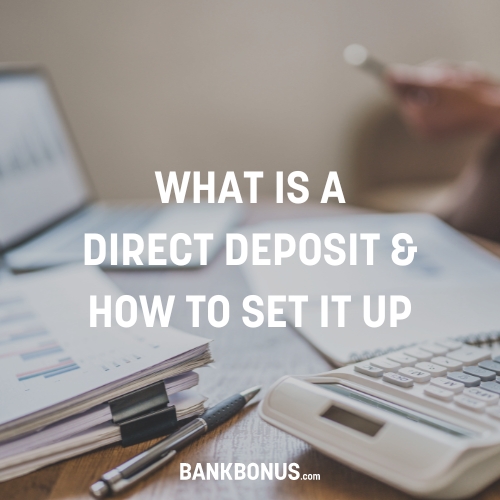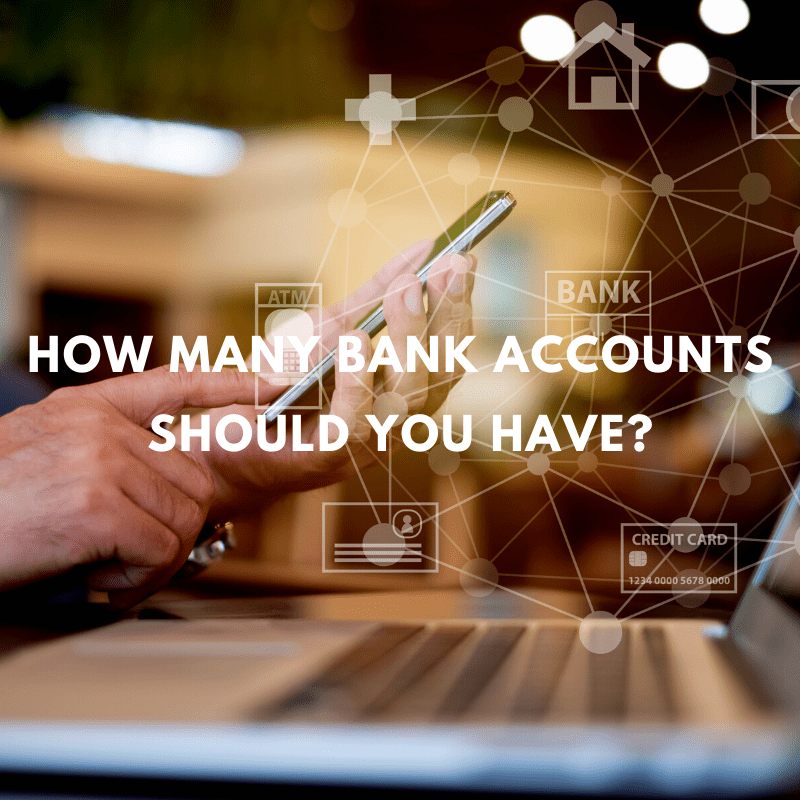Financial institutions – banks and credit unions – offer customers all sorts of bank accounts that cater to different needs and goals, but how old do you have to be to open a bank account?
While generally speaking, you need to be 18 years or older to open a bank account, you will also find several different accounts for those who are under 18.
These accounts not only come in different shapes and sizes – to accommodate different requirements and usage – but can also come with different perks and features.
What you get will largely depend on the bank or credit union that you choose.
First, it is essential to understand what you need the account for and what you hope to achieve with it and then go bank account shopping.
Doing it this way can help you make sure that you choose the best account for you and your child.
In this article, we’ll look at the different types of accounts available, what they are used for, and some of the most common features that you’ll find.
Minimum Age To Open a Bank Account
The minimum age to open a bank account in the US is 18. However, there are some exceptions.
Legally Emancipated
The first exception is that of individuals who are legally emancipated.
Minor emancipation is a legal framework through which a minor can assume specific responsibilities that are usually reserved to adults, including but not limited to opening bank accounts.
While all US states have minor emancipation, this can vary from one state to another.
As such, it is essential to check how your state implements this before making any decisions on how you would like to move forward.
Bank Account for Minors
The second expectation involves that of bank accounts for minors.
Up until an individual reaches 18 years of age, they are considered to be legally incompetent.
While nobody likes being called incompetent, this means that until someone reaches 18, they don’t have the competence to bind themselves by contracts.
Due to this, accounts for minors need someone who is of legal competence as a co-signatory – a parent or legal guardian.
Here, the responsibility ultimately falls on the person of legal age, even if each party is considered a co-owner of the account.
These accounts can be set up in several different ways, with each one of these ways imposing various restrictions, liabilities, and responsibilities or obligations.
Types of Bank Accounts for Minors
Generally speaking, there are two different types of bank accounts for minors – Custodial and Joint.
These accounts are very different, so it’s essential to understand how they work before opening either one. We will be covering these two types of accounts next.
Custodial Accounts
Custodial accounts, as the name implies, are accounts managed by a custodian.
Once the child reaches legal age, they assume full ownership of the account. There are two different types of custodial accounts – UGMA and UTMA.
- UGMA – UGMA stands for Uniform Gifts to Minors Act and allows for cash and securities gifts to be transferred into a custodial account.
- UTMA – UTMA stands for Uniform Transfers to Minors Act and allows for all kinds of properties to be transferred into a custodial account.
A custodian holds both UGMA and UTMA accounts for the benefit of the minor. The custodian has a right to control the property and pay for reasonable expenses as long as these are in the minor’s interest.
You cannot choose between UGMA and UTMA since the availability depends on the state and the banks. What this means is that the state you live in will have one or the other.
Joint Accounts
Joint accounts are very different from custodial accounts. A joint account offers both the minor and the parent (or guardian) access to the money as account holders.
In most cases, these accounts can be accessed through a mobile app and allow the parent as a joint owner to ascertain some control over the money, such as imposing withdrawal limits.
These controls and the features of the account itself will vary from one bank/account to another.
Savings vs. Checking Accounts
Once you have decided how you would like the account to be set up, you will need to choose between a savings account and a checking account.
As both deposit accounts work in different ways, you might want to consider the child’s age and the purpose of the account.
Savings Account for Teens
A pre-teen child is unlikely to need a checking account so that a savings account might be a better fit. You also get higher interest rates with a savings account so that your money will grow faster.
Checking Accounts for Teens
On the other hand, a checking account might be a good fit for a teenager, with many banks offering teen checking accounts alongside savings accounts.
These accounts come with a debit card for teens for ATM withdrawals and cashpoint payments, a mobile app, and a range of parental controls so you can keep tabs on your child and how they spend money.
In most cases, accounts are automatically converted to standard accounts once the child turns 18.
Educational Savings Accounts
Savings accounts meant specifically for educational purposes can also be opened for kids under 18 years of age.
Coverdell ESA
Coverdell ESAs (Education Savings Account) work like IRAs with some major differences. They used to be called Education IRAs.
Just like many IRAs, Coverdell ESAs are tax-deferred. They can be set up for children under 18 years of age and accept a maximum contribution of $2,000 per year.
Funds in CESAs can be used to fund educational expenses for the benefit of the beneficiary.
529 Account
529 Accounts, also known as 529 Plans, are tax-advantaged savings account with funds saved in this plan available for educational purposes.
Money can be spent on a wide range of expenses and may even avoid state and federal taxes. You can contribute as much as $150,000 per married couple per beneficiary.
How To Choose The Right Bank For Your Child
When it comes to choosing the bank to open the account with, you will typically have several options available, provided that they offer the type of account you want.
Just like bank accounts, banks also come in different shapes and sizes. There is no one best type of bank or best bank for that matter.
The best bank is going to be the one that is best aligned to your needs and requirements.
Traditional Bank
Traditional banks are the brick-and-mortar banks we all know. Here you will typically find a wide range of products and services, covering everything that you might need from a bank.
There are many advantages to choosing a traditional bank, including the ability to visit a local branch.
Another advantage of choosing a traditional bank early on is building a solid relationship that will more likely than not pay dividends well into the future.
Banks can be very important for your child’s personal finance – from getting a mortgage to building their retirement fund, having a solid history with the bank goes a long way.
Online Bank
In many ways, online banks operate just like traditional banks. However, there are a few exceptions.
The biggest exception is that online banks, as the name implies, are online and have no physical branches that you can visit.
On the other hand, with no branches to maintain online, banks tend to offer better interest rates and lower fees. That means that the money you and the child save will grow faster.
Online banks also tend to have better apps with more features and functionality. Offering this is important since you cannot physically visit a branch, ever.
Many banks have been making huge strides in technology and have equally good and secure banking apps.
Credit Union
Credit unions offer the same range of products and services as banks. The biggest difference here is that credit unions have members, not clients.
When you open an account at a credit union, you are essentially becoming a part-owner of that credit union, so you’ll earn dividends payable to your account.
Credit unions also tend to offer interest rates that are far higher than average. The downside here is that credit unions tend to be limited to one geographical area.
Membership can also be restricted to individuals that belong to a particular group, live in a specific area, or work with a partner company.
Many credit unions have started to open up their membership options allowing a larger cohort to join.
How To Open A Bank Account
The actual procedure can vary between banks and types of account, but typically you’ll need to provide:
- Your SSN (Social Security Number) as written on your social security card
- Your driver’s license
- Birth certificate of the minor
Before making your final decision, make sure you consider account features and fees, such as:
What To Look For:
- Interest rate. The interest rate, offered in the form of an APY rate, allows you to grow money in the account through payable interest – an incentive to maintain a high account balance.
- Insurance. Member FDIC and Member NCUA banks and credit unions can help you make sure your money is safe should something happen.
- Mobile Banking and Online Banking. Handy for joining checking accounts, mobile banking apps can help you make your life easier with on-the-go access to the account.
- Educational Tools. Financial literacy is the foundation of good money management and budgeting. Many accounts for minors offer some excellent tools that help them learn for free.
- Debit Card. From ATM withdrawals to making payments, many teen checking accounts come with a debit card to help you avoid handling cash.
What To Avoid:
- Monthly Fees. A monthly maintenance fee is usually charged on the account unless you maintain a minimum balance.
- Opening Deposit Requirements. Many accounts require an initial deposit with the amount varying from one account to another.
- Other Fees. Other fees might be levied on the account – make sure you know what they are since some, such as overdraft fees, can place a hefty burden on the account.
FAQs
Can you open a bank account at 16?
Yes – but you will not be able to open an account on your own. You can open a bank account with a parent or legal guardian where both you and the co-owner will be deemed an account owner.
Can a 16-year-old open a bank account without parents?
If the 16-year-old has been emancipated, in theory, they can open a bank account without their parents. If they haven’t, a parent or legal guardian needs to sign on as co-signatory.
Can I open a bank account for my 14-year-old?
Yes, you can open a bank account for your 14-year-old. You will generally have two options – either a custodial account or a joint account between you and your 14-year-old.
Can I get a bank account at 17?
The minimum age to open a bank account is 18 years. However, you can open a joint account with a parent or legal guardian in the meantime.





No comments yet. Add your own